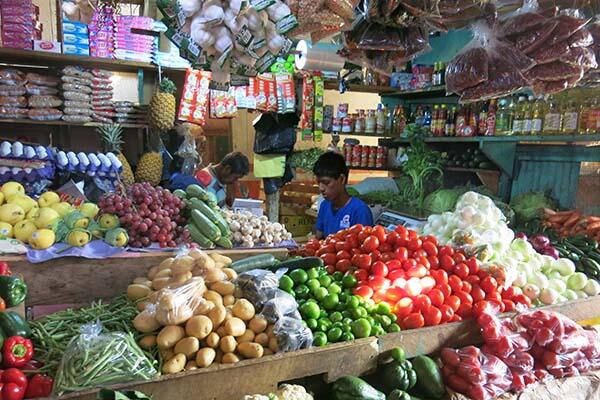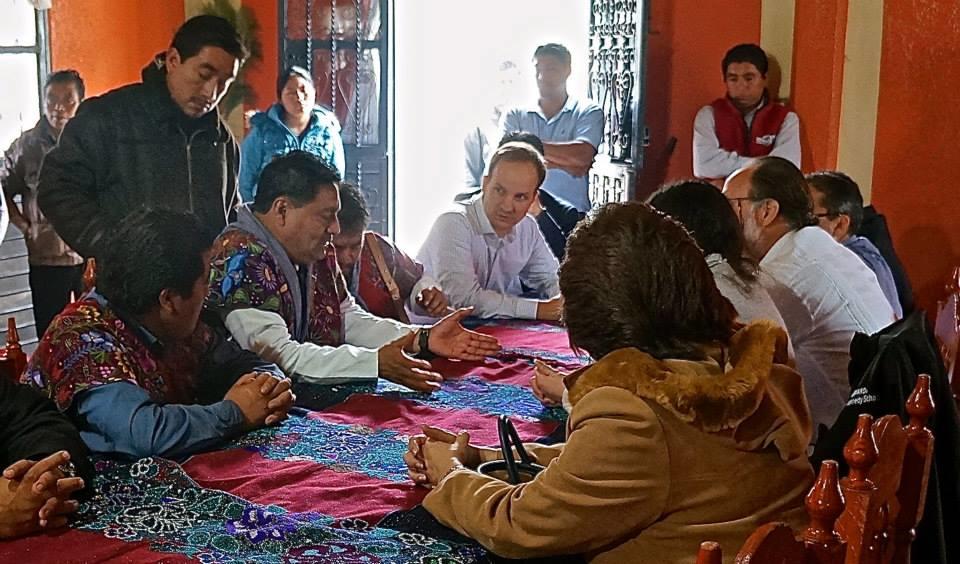Chiapas is not only Mexico's poorest state, but also the one displaying the lowest rate of economic growth. As a consequence, the income gap between Chiapas and the rest of Mexico continues to widen. Usual suspects like education, infrastructure, or financial constraints, are not to blame for Chiapas' dismal performance.
Analysis of Economic Potential of Mexico's Southern States (Chiapas)

To the contrary, over the previous decade Chiapas has improved its relative position within Mexico in terms of average years of schooling, infrastructure - roads, ports, and airports; and access to credit. The state's poor economic record also contrasts with the macroeconomic and institutional stability that has prevailed in Mexico over this period.
Behind the sponsorship of the Inter-American Development Bank (IADB), the Growth Lab at Harvard's Center for International Development teamed with the Mexican Ministry of Finance to launch a research initiative in the quest for the causes underlying Chiapas' backwardness.
More About this Project
The Growth Lab's team of scholars and research fellows are working on the ground, meeting indigenous communities, deploying its research toolkits and trademark methodologies to analyze the economic, entrepreneurial, and social landscape from different angles:
-
Complexity Report: Taking advantage of the fact that the Growth Lab is developing in parallel the Mexican Atlas for Economic Complexity, we have processed highly disaggregated data to locate the relevant productive capabilities in Chiapas, and looked for more complex industries of higher value-added that lie nearby on terms of knowledge, which stand out as viable opportunities for export diversification.
-
Growth Diagnostic: Adapting the methodology developed by Ricardo Hausmann and Dani Rodrik in 2005 for countries, to the realities of Chiapas´ sub-national context, we identified the main binding constraints for economic growth and outlined alternative policies to overcome them.
-
Poverty Profile: Relying on the expertise of Harvard Kennedy School's most capable social policy experts, we studied the income gap between Chiapas and the rest of Mexico, and identified the factors most commonly associated to poverty in the state.
-
Institutional Diagnostic: The Growth Lab has developed a thorough analysis of the institutional architecture of Chiapas, as related to the promotion of private investment, entrepreneurship and pioneering, and assessed the degree of coordination between private sector initiatives and public policies at the federal and regional context.
-
Pilot on Inclusive Growth: Given that more than half the population of Chiapas are indigenous and live in highly dispersed rural areas, the Growth Lab has partnered with Fundacion Los Grobo (Argentina) to leverage on their expertise of rural agriculture. We have carried a pilot project in the indigenous community of Cruzton, to learn more about their attitudes towards production, evaluate their capacities, and their potential to partner in larger units to spur labor productivity.
-
Policy Recommendations:To overcome current dilemmas and spark the engine of growth, Chiapas needs to resolve its issues of coordination, connectivity and gradually promote economic activities of higher complexity. Our recommendations are based in identifying the productive capabilities embedded within the current productive structure of Chiapas four largest urban agglomerations, and leveraging on them to board on different potential, more complex industries that use a similar base of knowledge.
While we hope to contribute inputs to a development strategy aimed at raising the standards of living in Chiapas, we have learned much about the process of turning complexity statistics into specific policy recommendations. The complexities of Chiapas, its diverse geography and rich indigenous culture, have only added to the magnitude of the challenge and enhanced our learning opportunities.
Seminar
In the Field
 Ricardo Hausmann and Miguel Angel Santos, together with officials from the Ministry of Hacienda José Ernesto López and Karla Petersen, meet tzötzil authorities in the municipality of Zinacantan.
Ricardo Hausmann and Miguel Angel Santos, together with officials from the Ministry of Hacienda José Ernesto López and Karla Petersen, meet tzötzil authorities in the municipality of Zinacantan.